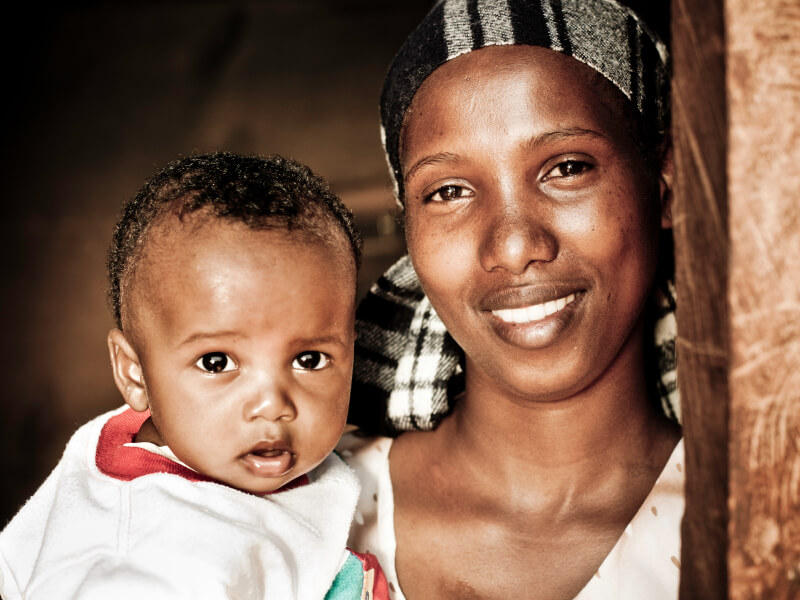Submission on the Draft General Comment on Article 6 of the International Covenant on Civil and Political Rights by United Nations Human Rights Committee
Culture of Life Africa writes in response to the United Nations Human Rights Committee’s request for Comments to the draft of their next General Comment on article 6 of the International Covenant on Civil and Political Rights, to object to the use of language that constitutes a misconstrual of the right to life and its implications, through an attempt at ideological colonisation of developing countries.
We turn our attention particularly to paragraph 9, which claims that access to legalised abortion is part of the ‘right to life’ because it prevents women from being ‘forced’ to access unsafe abortions.
This completely ignores the right to life of the unborn child, who is no less a member of the human family than an infant, a prepubescent, pubescent, adolescent, or an adult. S/he forms part of the continuity of human life, and to ignore children in the womb is discriminatory. Article 26 of the International Covenant forbids discrimination in the application of rights, and article 16 mandates that everyone must be recognised before the law. This is applied most especially to children in article 24, and if the Human Rights Committee is to issue a new General Comment, it cannot ignore the rights of the smallest of children in the womb.
These rights possessed by the unborn child do not cease because they have been conceived in the brutality of sexual assault, or because they possess a life-limiting disability. In both cases, the child cannot be blamed for the actions of her father, and if she suffers from a serious impairment, then she and her mother must be given the help they need through perinatal hospice care, and every medical assistance possible so they can both live with the comfort and assistance they ought to receive as patients. To put it bluntly, to imply that a child’s life can be terminated for reasons that are outside of his or her control, such as the way s/he was conceived, constitutes discrimination of the worst kind.
Yet the claim that women have a right to access abortion on the grounds of ‘health’ ignores what can be done to help women in situations of unplanned pregnancy, and the support that can be put into place in solidarity with their situation. Everything from financial and medical support in prenatal situations, to counselling and practical help with housing or other material resources, to (in those rare cases where the mother will not want to continue caring for her child) adoption services are all viable alternatives to abortion, and unlike abortion do not involve the violation of the right to life of the child.
As so often, it is difficult not to conclude that the Human Rights Committee is imposing in this General Comment a view normal amongst certain Western States parties, and thus attempting to ideologically colonise countries in regions like Africa (not to mention South America, the Middle East, and Asia) who have values and approaches to questions of unplanned and problematic pregnancies that are radically different to those taken in Europe, North America, Australasia, and certain areas of the Pacific.
Whilst it might be normal in the West to apply an individualistic account of how to answer the problems associated with pregnancies in which a mother lacks social support, or faces health issues, in Africa our cultural default is one in which these issues are seen in the context of community. We also attach far greater value and importance to human life and unborn children, an approach which we see actually as more in keeping with the wording of the International Covenant. This includes mention of all “members of the human family”, and all “human beings” enjoying “inherent dignity” and the right to life. This has, if applied with consistency and reason, to include children in, as much as out, of the womb.
We therefore do not accept the wording of the General Comment draft as currently submitted. We believe it should respect the unborn child and her right to life in explicit terms, and that all language that tries to justify abortion on the grounds of the mother’s right to life should be removed, as it interprets the International Covenant in a manner that is incoherent with its plain meaning and implications.
Rather than impose an unnatural and Western-centred ideological approach to the issue of abortion, the Committee should instead apply the principles within the International Covenant, which reflect the consensus that classically has belonged to all humanity, and in doing so affirm the humanity, dignity, and rights of every human being. If it cannot do so, then it should certainly refrain from imposing ideologies that are foreign to African values and culture, and leave us to show the world how a more compassionate culture that works in solidarity with its most vulnerable members is the more humane and egalitarian model for the world to follow.
(Submitted to the United Nations Human Rights Committee on October 5th 2017)

